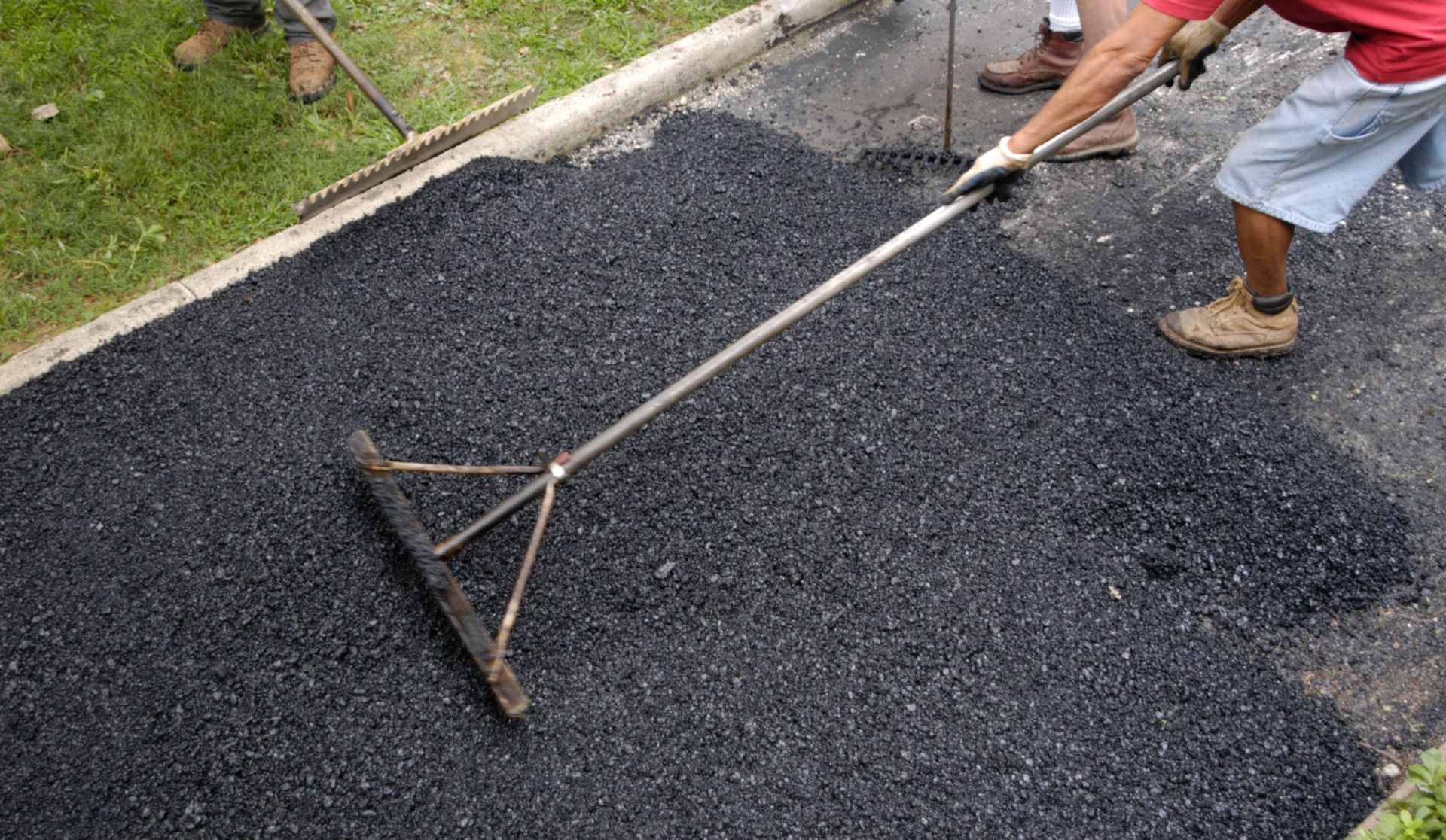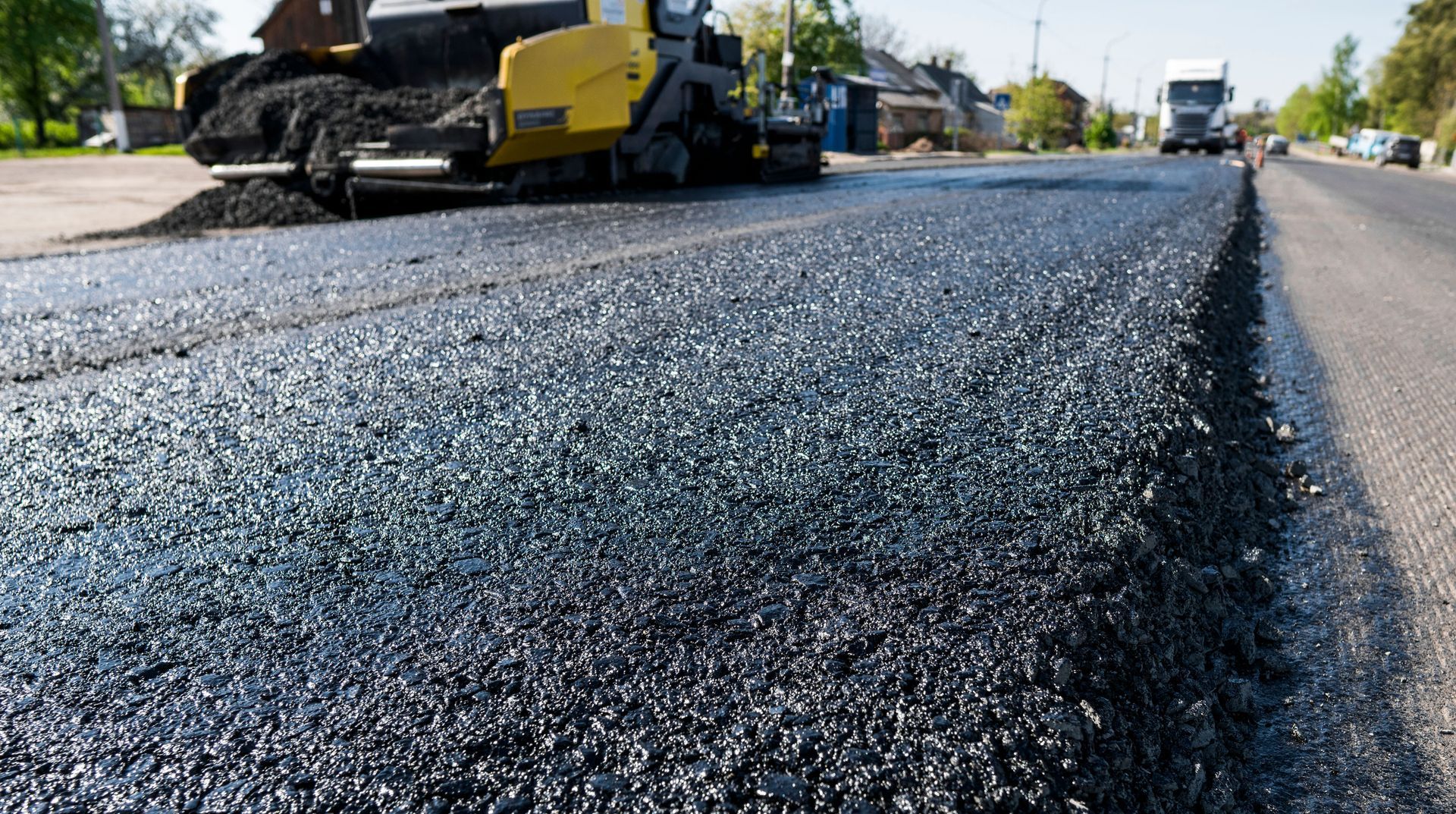Everything You Need to Know About Asphalt
Asphalt is a crucial component of modern infrastructure, playing a fundamental role in the construction of roads, airports, and countless other projects. Its importance cannot be overstated, as it provides the backbone for mobility and transportation systems that drive economic and social activity. According to World Metrics, the U.S. asphalt industry produces approximately 400 million tons of asphalt pavement material annually, making it one of the most heavily relied upon materials in modern construction.
But what makes asphalt such a versatile and dependable material? Why is it used so widely, and how does it continue to evolve to meet modern demands? This article takes a conversational, human approach to exploring asphalt—its composition, production, uses, and the ways it affects both our economy and the environment. By the end, you’ll have a fuller appreciation of how asphalt shapes daily life, much like how local paving contractors quietly shape our communities by keeping surfaces smooth, safe, and dependable.
Understanding Asphalt Composition
When we talk about asphalt, we’re really talking about a blend of materials working together. At its core, asphalt is a mix of aggregates—sand, gravel, or crushed stone—bound together with bitumen. Think of bitumen as the glue that holds the surface together. Depending on how it’s prepared, asphalt can be hot-mix, warm-mix, or even cold-mix. Each variety has its place, whether it’s laying down a highway, patching a driveway, or building infrastructure that needs to be strong and long-lasting.
The science behind asphalt is both practical and fascinating. Its chemical properties, such as flexibility and durability, are designed to respond to temperature changes and heavy loads. At the same time, its physical qualities—like density and viscosity—make sure it’s workable during construction and reliable once in place. Just like working with local paving contractors, getting the right mix of asphalt materials is all about balancing function, performance, and longevity.
Explaining The Asphalt Production Process
The journey from raw materials to a paved road is one filled with precision and innovation. Aggregates are sourced from quarries or recycled materials, while bitumen comes from refining crude oil. These components are carefully mixed together in plants that operate with efficiency and strict quality standards.
Over time, the industry has embraced new technologies that make production cleaner and more sustainable. Warm-mix techniques, for instance, lower energy consumption and reduce emissions. Modern equipment now monitors the quality of the mix in real time, ensuring that every batch performs the way it should. It’s not all that different from how local paving contractors use modern equipment to make sure surfaces are prepared, applied, and maintained with consistency. Both rely on skill, attention to detail, and an understanding of how small variations affect long-term results.
Highlighting Asphalt Applications
Most people think of asphalt only in terms of roads, but its applications go far beyond that. Asphalt is also used for roofing, waterproofing, airport runways, and even recreational areas like walking paths and sports courts. In each of these settings, asphalt provides durability, safety, and adaptability.
Imagine driving on a smooth highway, jogging on a community path, or landing at an airport—all of those experiences are made possible by asphalt. Its versatility ensures that it touches nearly every part of our lives, even if we rarely stop to notice it. Much like local paving contractors, asphalt supports society in ways that often go unnoticed until a crack or pothole reminds us of its importance.
Reviewing Asphalt Maintenance and Repair
No material lasts forever, and asphalt is no exception. Over time, it faces challenges like cracking, potholes, and rutting. These issues usually stem from environmental stress, heavy use, and water infiltration. Fortunately, maintenance techniques have become more advanced, focusing not only on repairs but also on prevention.
Seal coating, crack sealing, and regular inspections help extend the life of asphalt surfaces. When repairs are needed, methods like patching or overlays restore functionality without requiring a complete rebuild. Modern innovations, such as infrared heating or polymer-modified mixes, make these repairs more cost-effective and long-lasting. If you think about it, it’s similar to the work done by local paving contractors, who know that proactive care saves both time and money in the long run.
Considering Economic and Environmental Impact
Asphalt doesn’t just pave roads; it paves the way for economic growth. By enabling transportation and trade, it fuels job creation and supports industries that rely on reliable infrastructure. Every smooth highway or efficient airport runway translates into opportunities for businesses and individuals alike, allowing communities to thrive and economies to remain connected. Its presence influences daily life in subtle but meaningful ways, from commuting and shipping goods to supporting access to services and regional development.
On the other hand, producing and using asphalt can have environmental impacts, including energy use and emissions. To address these concerns, the industry and local paving contractors are adopting more sustainable approaches and improving efficiency in their processes. These practices help reduce the overall environmental footprint while maintaining the effectiveness and reliability of asphalt surfaces. By focusing on smarter planning and modern techniques, asphalt projects can continue to meet the needs of communities without compromising environmental responsibility.
Understanding Regulatory Standards and Practices
The asphalt industry doesn’t operate in a vacuum. It is guided by strict government regulations, industry standards, and certifications that ensure consistency, safety, and quality. These rules are designed to protect the environment, promote public safety, and keep projects on track.
Industry organizations also play a big role by setting best practices, encouraging innovation, and promoting sustainable solutions. By adhering to these guidelines, asphalt producers and local paving contractors maintain a level of trust with communities and clients. This trust ensures that surfaces are safe, durable, and constructed to last, reflecting the importance of skilled professionals in every project.
Looking Toward The Future of Asphalt
The story of asphalt is far from finished. The future points toward even greater sustainability, smarter technology, and stronger infrastructure designed to withstand the pressures of climate change and growing populations. Intelligent monitoring systems, eco-friendly materials, and advanced recycling methods are setting the stage for the next generation of infrastructure.
Just as innovations have reshaped industries like energy or personal comfort, so too is asphalt evolving to meet the demands of tomorrow. Much like local paving contractors who continuously adopt new methods to improve safety and efficiency, the asphalt industry is preparing for challenges ahead by blending tradition with innovation. The focus is not just on building roads but on building resilience and efficiency into the very foundation of society.
Asphalt may not be flashy, but it’s everywhere, silently supporting our daily lives. From the roads we drive on to the roofs over our heads, it provides strength, durability, and adaptability. Understanding asphalt allows us to see its vital role in shaping communities and economies while also recognizing the importance of sustainable practices that will carry it into the future. Asphalt’s story is, in many ways, our story too—about building connections, enabling progress, and preparing for what lies ahead. By investing in quality materials and skilled professionals, communities can ensure that these vital surfaces remain safe and reliable for years to come. If you’re interested in learning more or need expert support for asphalt projects, trust Lancaster County Asphalt—your local partner in building stronger, safer, and more sustainable surfaces.







Share On: